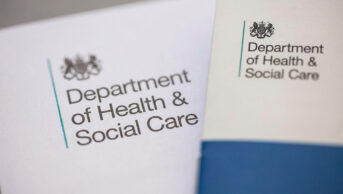
Shutterstock.com
The House of Lords Public Services Select Committee has launched an inquiry into the UK’s ability to predict and prevent medicines supply issues.
In a call for evidence published on 5 August 2025, the committee noted that “medicines shortages across England are increasingly prevalent, putting patient health at risk and placing significant pressure on pharmacies”.
The committee also referenced The Pharmaceutical Journal’s exclusive investigation, conducted in 2024, that found that medicines shortages reported to government increased by almost 70% between 2021 and 2023.
The inquiry will consider:
- The causes of medicines supply issues;
- The impact of medicines supply issues;
- Current and possible future threats facing the UK medicines supply chain;
- How effectively national stock levels are monitored and communicated;
- Procurement strategies and international collaboration;
- Research and manufacturing, particularly the potential of England’s domestic manufacturing capacity.
In addition, the committee highlighted that it particularly wants to hear from pharmacies, patients and others from across the medicines supply chain, with written contributions to be submitted by 23 September 2025.
A spokesperson for Medicines UK, which represents the interests of British generics manufacturers, welcomed the focus of the inquiry, noting that “four out of five NHS prescriptions rely on off-patent generic or biosimilar medicines”.
“In today’s increasingly volatile geopolitical climate, the UK must have a robust strategy to prevent disruption and strengthen supply chain resilience. The EU has made collective strides in policy relating to critical medicines, and we believe the UK should adopt a similarly strategic approach,” the spokesperson added.
Tase Oputu, chair of the Royal Pharmaceutical Society (RPS) English Pharmacy Board, told The Pharmaceutical Journal that she hoped the inquiry “leads to practical solutions that improve medicine access and patient care”.
“Medicines shortages are a growing challenge for both patients and pharmacists, adding further pressure to the workforce and across the NHS,” she said.
A report — ‘Medicines shortages: solutions for empty shelves’ — published by the RPS in November 2024, made 20 recommendations to alleviate ongoing medicines shortages in the UK, including the introduction of a national strategy to tackle the ongoing problem of medicines shortages in the UK.
In March 2025, a report published by the Company Chemists’ Association suggested that the way medicines are priced creates a ‘false economy’ that drives shortages.
In June 2025, the House of Commons All-Party Parliamentary Group on Pharmacy called for the creation of a national patient advisory panel on medicines shortages.
Oputu also highlighted that “earlier warning systems, better data sharing and allowing pharmacists to make minor amendments to prescriptions to ensure patients can get the medicines they need” would be “key” to improving medicines supply chain resilience.
The government has previously suggested that it would publish a consultation on allowing community pharmacists to amend prescriptions in the event of a medicines shortage “by summer 2025”.


